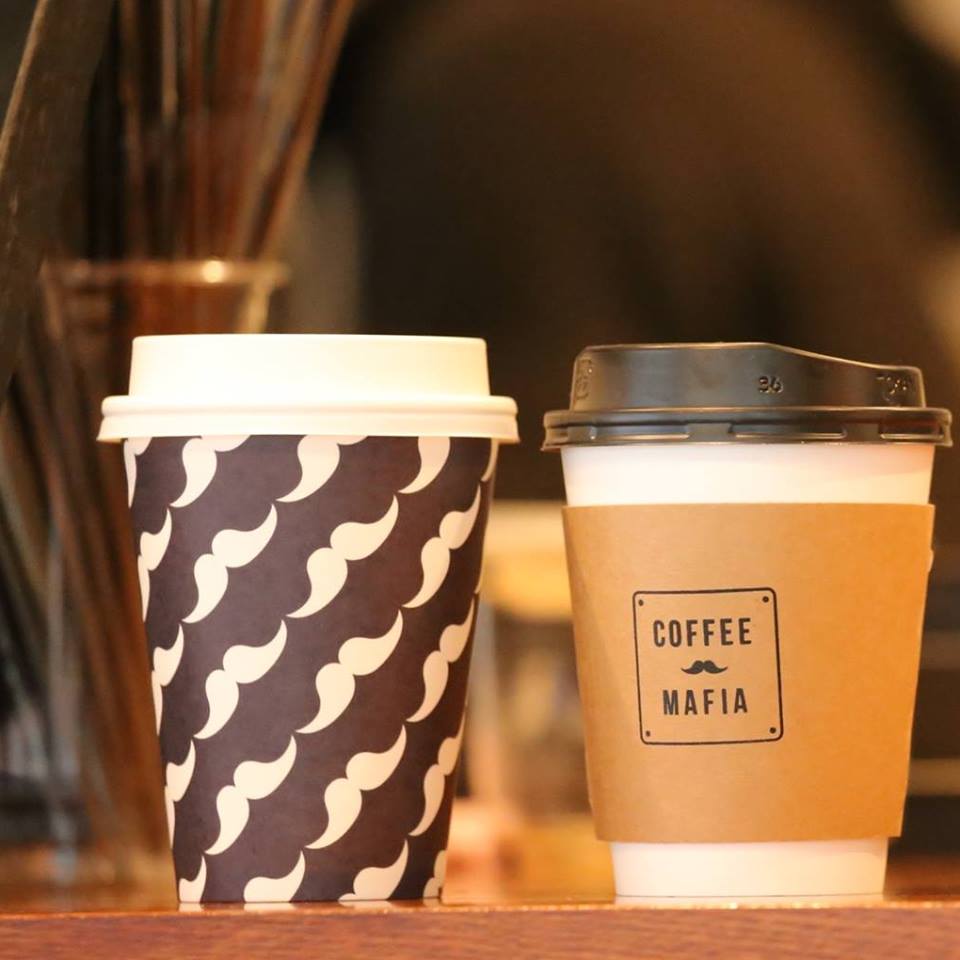If you pay once, you will have enough coffee in a month! Is Japan's emerging "food subscription" service effective?

Professional coffee knowledge exchange more coffee bean information please follow the coffee workshop (Wechat official account cafe_style)
For many office workers, the first thing they do when they enter the company on weekdays is to drink a sip of coffee to refresh themselves. A coffee shop in Tokyo, Japan saw this business opportunity and decided to let customers "pay once, drink coffee full in a month"!
Such "food subscription" services are also becoming popular in the catering industry. This article will take you to see how these Japanese companies use "subscriptions" to overturn the immutable charging model.
Innovation: as little as 2000 yen a month, you can enjoy a cup of American coffee in the store every day, which is cheaper than Seven!
This paper focuses on four points: 1. Use "coffee for you to drink" to attract customers to buy other goods in the store. two。 Subscribe to ramen with your mobile phone, and you can feast on it with just one electronic meal voucher every day. 3. Healthy fruit juices can also be "subscribed" and try their best to market themselves. 4. Let the customer "drink beer to the fullness", can bring stable income.
1. Use "coffee for you to drink" to attract customers to buy other goods in the store
Coffee Mafia (Coffee Mafia), located in West Shinjuku, Tokyo, has launched a "subscription" service to attract customers to spend in the store more often. Customers pay 2000 yen a month for a medium cup of American coffee each time they come to the store (by contrast, a medium cup of American coffee costs NT $35 per Seven in Taiwan, or NT $700 for 20 working days a month). If a customer comes to the store three times a day, he can drink three cups of coffee without any restrictions.
Customers who need more coffee can choose to pay 3000 yen a month. Every time you go to the store, you can get a large cup of American coffee.
If you want to save money and need to drink a lot of coffee, you can choose the plan of 2000 yen, and then work harder every day and make more "Coffee Mafia" trips.
For customers who don't like American style, Coffee Mafia also offers the ultimate monthly payment of 6500 yen, which allows customers to upgrade American style to lattes, specials, or even "bulletproof coffee" (it is said that drinking a cup of coffee in the morning and skipping breakfast can provide enough calories and help you lose weight).
After launching the "subscription" program, Coffee Mafia found that customers come to the store an average of 20 times a month. Because of the frequent meetings, shop assistants are also able to establish a deeper relationship with customers, such as chatting with customers while waiting.
Although, customers come to the store too many times, it will drive down their profits. However, the "loyalty" of "Coffee Mafia" customers'"cross-selling" has led to an increase in sales of other goods in the store. For example, when customers come to the store to "get" coffee, they will order their light meals.
Last summer, Coffee Mafia launched a 100-yuan draft beer program in response to the hot weather, so that subscribing members can buy a cool draft beer for 100 yen. This not only makes members feel cost-effective, but also increases their turnover.
two。 Subscribe to ramen with your mobile phone, and you can feast on it with just an electronic meal voucher every day.
Japan experienced a "lost 30 years" after the bursting of its bubble economy in the 1990s, during which many Japanese office workers developed the habit of frugality. Therefore, the "subscription" service with high CP value launched by "Coffee Mafia" is welcomed by many people in Japan.
"Coffee Mafia" solves the problem that office workers need coffee every day, but the bigger problem is the three meals that office workers have to figure out every day.
As a result, Nolo Ramen, a chain of Japanese ramen restaurants with 16 stores in Tokyo, launched a "subscription" program called "one bowl of ramen a day" in November 2017. Customers only need to pay 8600 yen a month to enjoy a bowl of hot ramen noodles every day. If they visit five times a week, the average bowl of ramen noodles is 430 yen.
In addition, customers can choose their favorite flavor from three kinds of ramen (dolphin bone Noburo ramen, original price 780 yen, Nolang dried noodles, original price 830 yen, and miso Noilo ramen, original price 880 yen). In this way, customers will not get tired of eating the same ramen every day.
For the convenience of customers, they have also launched a dedicated App, so that customers can get a new electronic meal coupon in App every day after "subscribing". When customers spend money, they only need to enter the branch number in the coupon and give it to the clerk for inspection. This can also avoid the problem that customers forget to bring physical coupons or lose them.
When Nelang ramen first launched this service, many people were skeptical. Although ramen is a national delicacy in Japan, they can't imagine anyone willing to eat ramen every day.
But unexpectedly, the enthusiastic response to the service not only attracted office workers, but also allowed many poor students to enjoy delicious ramen every day at the most cost-effective price. And these students have become living signboards in the store, constantly telling other students the news of "good health", which has greatly enhanced the popularity of "Yelang ramen" among the student community.
The manager of Yelang Ramen also said that the store had been faced with the problem of customer loss before. Since the launch of the "subscription" program, 80% of the regular customers have returned, and the number of weekly visits has also increased.
3. Healthy juice can also be "subscribed" and marketed as hard as possible.
With high CP coffee and ramen, office workers also need to consider getting a balanced diet every day, especially a variety of vitamins.
Shonan Smoothie & Juice, a fresh juice shop in Kanagawa, Japan, has also launched a "subscription" juice program to replenish nutrition for customers. Customers only need to pay 3800 yen a month to come to the store every day to enjoy a glass of "special juice of the day".
If you think "special juice of the day" is too "luxurious", customers can also choose a glass of "basic juice". In order not to make customers feel "losing money", "Shonan Smoothie & Juice" will also refund 200 yen to customers who drink "basic juice".
Unlike "Coffee Mafia" and "Nelang Ramen", the "subscription" program of "Shonan Smoothie & Juice" is limited to 50 per month. Therefore, this scheme is more like a marketing tactic. The monthly limit of 50 will make customers feel more precious, so they want the opportunity to "subscribe" more.
In addition, this "subscription" program also ensures that customers who have already purchased will not patronize competitors, and at the same time, it also enhances customers' adhesion to themselves. In the long run, we will be able to gain more advantages in the competition.
4. Let the customer "drink beer to the fullness", can bring stable income
After a busy day, Japanese office workers like to drink in bars. As a result, the bar's "subscription" service also began to rise.
Pomelo, a restaurant in Tokyo, allows customers to pay 3000 yen a month (the same as a large cup of black coffee, cheaper than juice) to "drink beer to the fullest" every day!
For customers who don't want to drink beer alone, pomelo also offers Chu Hai (distilled liquor mixed with fruit juice or sparkling water) or other alcoholic drinks for customers to choose from.
As customers will feel that "the more often, the more cost-effective", so in the launch of the "subscription" service, "pomelo" customers are also on the rise.
In order to attract more customers, pomelo has also launched a "subscription" program of different lengths. If a customer wants to "subscribe" for six months at a time, he only needs to pay 13000 yen, which is 5000 yen cheaper than his monthly renewal.
From this point of view, the scheme launched by pomelo is not very profitable. However, the person in charge of pomelo feels that subscription solves the biggest challenge facing the catering industry, which is the unstable number of visitors, which leads to cash flow problems.
Although the profit of subscription is not very high, it provides a stable income and is paid in advance. And these revenues can make the store do not have to worry too much about cash flow problems.
In addition to the stores introduced above, there are many food "subscription" services in Japan. For example, a steakhouse in Rachigi allows customers to pay 70000 yen a month and then enjoy 450g of steak every day.
After seeing so many stores, have you thought of any Chinese cuisine that is suitable for "subscription"? It seems that this business model can be used for hand cups, salted crispy chicken and even buffets. Maybe you can share this idea with your beloved shopkeeper and look forward to seeing a similar plan around us soon.
END
Important Notice :
前街咖啡 FrontStreet Coffee has moved to new addredd:
FrontStreet Coffee Address: 315,Donghua East Road,GuangZhou
Tel:020 38364473
- Prev

Coffee from Central America Coffee Honduras Coffee Taste characteristics volatile coffee producing areas
Professional coffee knowledge exchange more coffee bean information Please follow the coffee workshop (Wechat official account cafe_style) speaking of Honduran coffee, many people may feel very strange. It is only associated with the world-famous diving resort of Honduras Blue Cave, but indeed, Honduras produces coffee, and coffee production is still very high, coffee.
- Next

Introduction to the common types of coffee
Coffee is one of the three major drinks in the world, which is made from roasted coffee beans. It is the main drink popular in the world along with cocoa and tea. Coffee tree is a regular tree of Rubiaceae. Coffee for daily consumption is made of coffee beans combined with various cooking utensils, and coffee beans refer to the nuts in the fruit of coffee trees.
Related
- What documents do you need to go through to open a coffee shop? coffee shop coffee shop certificate processing process
- How to purchase Coffee beans in small Cafe how to choose a suitable supplier for domestic Coffee supply Company
- How to drink Starbucks Fragrance White Coffee? how to make Australian White Coffee? what Italian coffee beans are recommended?
- The Story of Flora Coffee: the name of Flora Coffee Bean and the implication of the Flowers on Florna Coffee
- How much does a cup of coffee cost? How much is the profit of a cup of coffee? What is the profit of the coffee shop in a year?
- Yunnan small Coffee, known as "fragrant Coffee", introduces the characteristics of Alpine Arabica Coffee producing areas in Yunnan, China
- 2023 latest Starbucks full menu price list how much is a cup of Starbucks coffee what is better to drink the most popular hot and cold drinks recommended
- Starbucks different kinds of Coffee Price list Starbucks menu 2023 Top Ten Best drinks in Starbucks
- Starbucks Spring praise Comprehensive matching Coffee Bean theme Story Packaging implication and taste description
- The cost of a cup of coffee latte American coffee cost price and selling price

